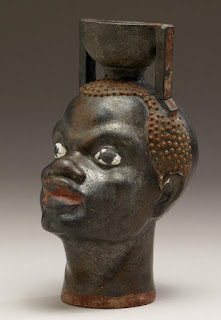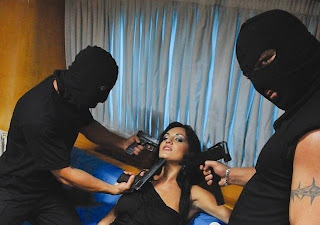TV documentary 1821 angers nationalist Greeks
The poster of documentary "1821" showing Greek independence hero Kolokotronis with the "Blue Cross," the flag of insurrection.
Niyazi Dalyancı
A television documentary about the Greek independence struggle against the Ottomans aired by Greece’s Skai channel has angered clerics and hard core nationalists who accused the producers of being biased in favor of the Ottomans.
The eight-part documentary called 1821, the date when the Greeks insurrected against the Ottomans in Morea, today called Peloponnese, at the southern tip of the Greek mainland, aims to present an objective narrative of history. The documentary was produced and presented by the Greek writer Petros Tatsopoulos with an impressive team of international historians including William St. Clair of University of London, Thanos Veremis of Athens University and Fikret Adanir, professor of history at Istanbul’s Sabanci University.
The initial episodes also refer to the conquest of Greece by the Ottomans in the 15th Century and point out that the standard of living and amount of agricultural produce increased after the conquest that came just after a devastating epidemic of “black death.” But the part that must have been the most disturbing for the far right circles and some clerics in Greece is when the documentary describes the initial uprising as a religious war against the Muslims in Morea that resulted in the killing of some 20,000 Muslim men, women and children during the first few weeks of the insurrection. According to the documentary, Christian peasants were incited to rebellion by priests and leaders of the rebellion like Theodoros Kolokotronis who is a national hero in Greece, by untrue rumors that the Russian Czar had occupied Constantinople and his armies were coming to liberate Orthodox Greeks from the Ottoman yoke.
The documentary also describes dramatically the bloodbath that followed the siege of Tripolitsa, the capital town of Peloponnese under the Ottomans.
Naturally, 1821 also illustrates the mass killings carried out by the Ottomans as a reprisal to the Greek rebellion, especially the slaughter of islanders of Chios, Sakiz in Turkish, just across from Izmir.
Tatsopoulos comments that only after the bloodbath of Chios interest to the Greek rebellion arose in Europe with many volunteers coming to fight for the Greek cause. According to the commentary, Chios was populated at the time by rich merchants and ship owners who had commercial representatives in the European metropolitan centers like London, Paris and Marseilles, who were instrumental in spreading the news of the massacre.
The documentary is sponsored by the National Bank of Greece that bought the majority shares of a Turkish bank in 2006. This fact is also exploited by the critics of the documentary who allege that the bias in favor of Turkey is a deliberate calculation to serve the sponsor’s interests in this country.
Tatsopoulos, the narrator of the documentary said at an interview that he was expecting some negative reaction but not to such an extent. He said most of the harsh reaction was coming from bloggers and internet sites.
“From the beginning I was expecting positive and negative reactions. But I did not expect that they were to be expressed in such a violent manner. Although the negative reactions are definitely less compared to the positive ones but when you face insults such as ‘agent on the payroll’ or ‘servant of foreigners’ or even worse…. I confess I was not expecting such violence; and not only me as a matter of fact, but none of the contributors were expecting such a thing,” Tatsopoulos said.
The chief consultant Prof. Veremis of the documentary also got his share of rancor from the rightwing LAOS party, the deputies of which asked for an explanation from the Minister of Culture Pavlos Geroulanos pointing out to what they termed as “distortion of Greek history” in the documentary. In the written demand for an explanation the LAOS deputies claimed that Veremis was pushing the idea of a confederation between Greece and Turkey.
Anthimos, the metropolite of Salonica who is known for his anti-Turkish comments also joined the critics at a Sunday sermon saying that the documentary was “a destruction of history as we knew it until today.”
The documentary “1821” is still being aired by the Skai channel in Greece while the arguments over its content are still continuing.
Link zur der Dokumentation, nur auf griechisch



